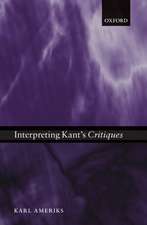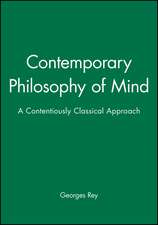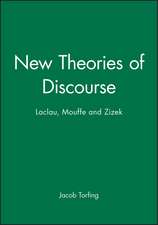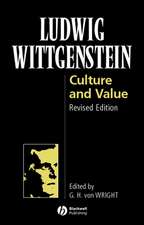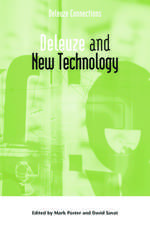Modernity and its Discontents
Autor James L. Marsh, John D. Caputoen Limba Engleză Hardback – 31 dec 1991
| Toate formatele și edițiile | Preț | Express |
|---|---|---|
| Paperback (1) | 260.91 lei 6-8 săpt. | |
| ME – Fordham University Press – 31 dec 1991 | 260.91 lei 6-8 săpt. | |
| Hardback (1) | 531.94 lei 6-8 săpt. | |
| Wiley – 31 dec 1991 | 531.94 lei 6-8 săpt. |
Preț: 531.94 lei
Preț vechi: 656.71 lei
-19% Nou
Puncte Express: 798
Preț estimativ în valută:
101.78€ • 106.56$ • 84.22£
101.78€ • 106.56$ • 84.22£
Carte tipărită la comandă
Livrare economică 05-19 aprilie
Preluare comenzi: 021 569.72.76
Specificații
ISBN-13: 9780823213443
ISBN-10: 0823213447
Pagini: 238
Dimensiuni: 152 x 229 x 15 mm
Greutate: 0.49 kg
Ediția:New.
Editura: Wiley
ISBN-10: 0823213447
Pagini: 238
Dimensiuni: 152 x 229 x 15 mm
Greutate: 0.49 kg
Ediția:New.
Editura: Wiley
Recenzii
a[A] uniquely constructive dialogue which brings into focus the principal epistemological, ethical, and political issues. . . .a
Notă biografică
Textul de pe ultima copertă
The introduction by Merold Westphal sets the scene: "Two books, two visions of philosophy, two friends and sometimes colleagues..". This book is an attempt at a mediated dialogue between the critical modernism of Marsh's Post-Cartesian Meditations, deeply indebted to the thought of Jurgen Habermas, and the postmodernism of Caputo's Radical Hermeneutics, equally indebted to the thought of Jacques Derrida. Their distinctive embodiments of these two major movements in contemporary philosophy are by no means simply the exposition and defense of Habermas and Derrida, for Marsh and Caputo bring to the discussion their own long formation in continental philosophy as interpreted and practiced in North America. Moreover, given their even longer formation in the Christian tradition, they are not bound by the dogmatic secularism of Habermas and Derrida. But the point of contact is not so much religious as political, and the fundamental question concerns the role that reason may play in building a humane society. It is in their differing estimates of reason's nature and possible political function that the disagreements are most sharply focused. Thus the epistemological debate is driven by political passion and properly concerns the viability of the Enlightenment dream that knowledge could indeed be enlightening and humanizing. Westphal is especially well suited to attempt to mediate the debate because he not only shares with Caputo and Marsh a long formation in both continental philosophy and the Christian faith, but he is deeply sympathetic to both critical modernism and postmodernism. Caputo finds him to be almost as hopeless a rationalist as Marsh, while Marsh finds him to flirt almost asshamelessly with irrationality as Caputo. Westphal seeks to argue, not for a synthesis of the two perspectives, but for a willingness to live in the tension between the two.

